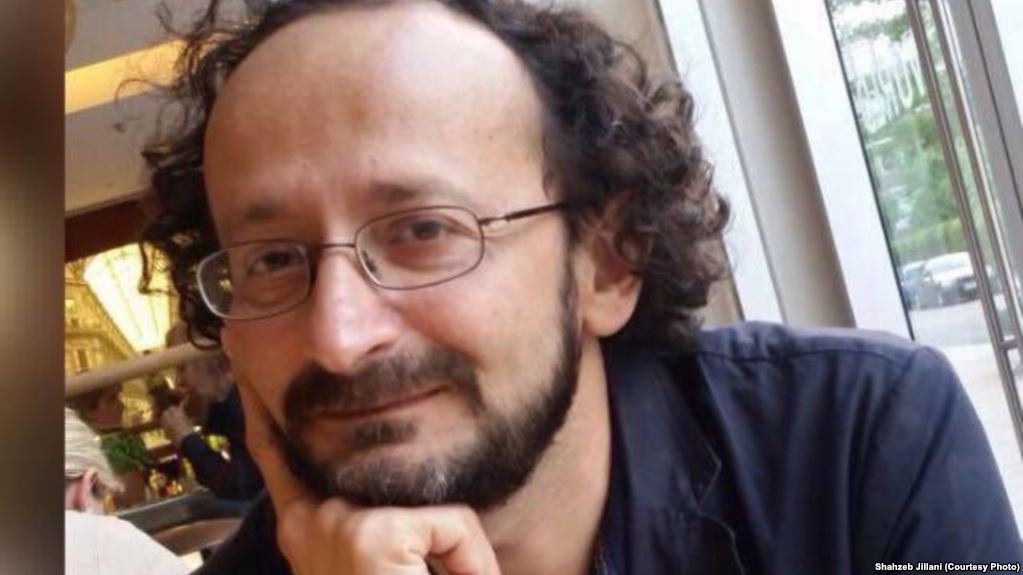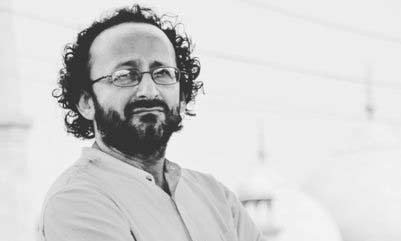RSF, KUJ condemn ‘trumped-up charges’ against Shahzeb Jillani
Herald Report

A district court in Karachi on Wednesday extended by a week the interim pre-arrest bail granted to journalist Shahzeb Ali Shah Jillani in a case pertaining to alleged cyber terrorism, electronic forgery and defamatory remarks regarding state institutions.
Last week, the journalist had been granted interim bail before arrest in a case registered by the Federal Investigation Agency (FIA) under Sections 500 (punishment for defamation), 109 (abatement) and 34 (common intention) of the Pakistan Penal Code read with the Sections 10(a) (cyberterrorism), 11 (hate speech) and 20 (offences against dignity of a natural person) of the Pakistan Electronic Crime Act, 2016.
Jillani appeared before District and Sessions (South) judge Imdad Hussain Khoso and sought confirmation of his interim bail, granted last week against a surety of Rs100,000.
The FIA’s investigating officer did not appear before the court, for the second consecutive time, despite the court’s direction for him to show up along with police papers of the case.
The prosecutor expressed his inability to argue the bail application since the police papers were with the IO, who also could not be contacted. He requested for an adjournment to enable him to argue the case on the next date.
The judge, therefore, extended the interim bail for Jillani till Wednesday.
The court once again summoned the IO for the hearing.
A complainant named Moulvi Iqbal Haider has alleged in an FIR that, during an episode of Dunya Kamran Khan Kay Sath on December 8, 2017 Jillani, who was the coordinator of the programme, had “articulated defamatory remarks against respected institutions of the country while answering questions posed by the show’s host”.
The petitioner said that the journalist had made remarks against the “invisible security forces of the country” and had alleged that “the law enforcement agencies were directly involved in kidnapping of the citizens, which leads to cases of ‘missing persons’.”
The complainant said that in the March 18 episode of the programme, he once again noticed that Jillani had passed remarks through which law enforcement agencies had been “directly or indirectly, deliberately and intentionally accused of influencing the democratic system of Pakistan, due to which the solidarity, sovereignty, integrity and security of the state had been damaged and personal sentiments of the voters/general public had been hurt.”
According to Haider, Jillani had first “made a reference to the history of army generals negatively influencing democracy”, then suddenly referred to “the invisible force”, adding that “they select rulers.”
Haider, as per the FIR, further stated that Jillani had said that “Prime Minister Imran Khan cannot survive in the assembly if he works for public welfare and does not follow the directions of the establishment.”
The complainant also accused Jillani of toeing the “line of foreign agencies on social media and had also been blogging in order to implement his agenda against the sovereignty of Pakistan”.
Haider said that the act of the suspect was in connivance with “others responsible at Dunya News as well as in collusion with the enemy countries”.
The FIR further mentioned that during the course of the inquiry it was found that “Jillani had — with the criminal intent and ulterior motives and without any lawful justification — made sarcastic, derogatory, disrespectful remarks and used defamatory language against Pakistan, the Election Commission of Pakistan, the armed force, including the chief of the army staff and Inter-Services Intelligence, etc.”
According to the complainant, Jillani’s actions “are tantamount to creating a sense of fear, panic, insecurity in government institutions, general public and society”.
RSF, KUJ condemn trumped-up charges
Reporters Without Borders (RSF) has condemned what it calls “trumped-up charges” against a Pakistani journalist.
Shahzeb Jillani, an investigative reporter who works for the Urdu-language Dunya News TV channel, is accused of “cyberterrorism” and making “defamatory remarks against the respected institutions of Pakistan.”
Jillani is due to appear in court in the port city of Karachi on April 17.
The Paris-based media watchdog said in a statement on April 16 that the case against Jillani has been designed to intimidate and silence Pakistan’s journalists and called on the court to dismiss the charges.
He has been charged under a controversial cybercrimes act and two Criminal Code provisions.
“Pakistan’s authorities are yet again manipulating the laws in order to silence a journalist who dared to cross a red line by criticizing certain institutions,” said Daniel Bastard, the head of RSF’s Asia-Pacific desk. “It is shocking to see how, little by little, case by case, the Pakistani security agencies are tightening their vice in order to intimidate the entire media profession into censoring themselves.”
‘Sarcastic’ Language
Jillani, who previously worked for the BBC and Deutsche Welle, is known for his critical reporting on Pakistan’s powerful army and intelligence services.
Criticism of the military establishment has long been seen as a red line for the media, with journalists and bloggers complaining of intimidation tactics including kidnappings, beatings, and even killings if they cross that line.
In September 2018, the New York-based Committee to Protect Journalists said that the climate for press freedom in Pakistan was deteriorating as the country’s powerful army “quietly, but effectively” restricted reporting through “intimidation” and other means.
Jillani is accused of making “audacious remarks against invisible security forces of Pakistan” during an appearance on Dunya TV in 2017, and making similar comments in 2019.
The police report into the complaint said Jillani had also tweeted “sarcastic, derogatory, disrespectful and defamatory language” against Pakistani state institutions.
Karachi Union of Journalists (KUJ) has condemned the case against Jillani under a “coercive law” for merely “expressing his independent views”.
The KUJ also criticised the law under which the case has been registered against Jillani, noting that “PECA was enacted in 2016 without consulting the journalist community and other stake holders.”
“The law seems to be in contravention of Article 19 of the Constitution, which gives freedom to any citizen of the country to express his or her views without any fear,” a KUJ statement said.
KUJ President Ashraf Khan and general secretary Ahmed Khan Malik said that “a systematic campaign” was going on to suppress the voices of journalists and that the latest notice was “a part of that campaign”.
They called upon the parliamentarians to review PECA as “it denies the rights of freedom of speech to the people of Pakistan.”
Both the office-bearers strongly demanded that “the government revokes the notice against Jillani, who enjoys an impeccable journalistic career and is well respected in the journalism community.”

The High Asia Herald is a member of High Asia Media Group — a window to High Asia and Central Asia

